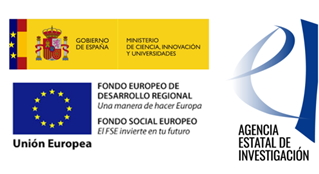PredMed aims to function as a research tool for the study of pre-modern Christian, Jewish, and Muslim preaching, preachers and sermons in order to understand the roles they played in the formation and representation of communal identities and in shaping the tenor of social and transcultural interactions among the three principal religious groups who inhabit the Mediterranean.
The idea for the creation of the “PREDMED” Hub was inspired by the research initiative, “MediTerraneum: An Historical Perspective on the Relations between the Mediterranean and Europe (METE),” jointly sponsored by the Institut Universitari d’Història Jaume Vicens Vives and the Casa de Velázquez of the Universitat Pompeu Fabra in Barcelona. The program focuses its research on the history of ideas and on the study of the collective identities and their representations that have characterized the relations between the Mediterranean and Europe. Operating within this general framework PREDMED is primarily concerned with studying the intersections between religion and the construction of communal and gendered identities and notions of alterity, and with exploring evidence of the social relations and transcultural interactions among Christians, Muslims, and Jews.
The geographical focus of our research will be principally on the Iberian Peninsula, North Africa, and the broader Mediterranean, while not ignoring other northern European countries where ideas flowed to and from the Mediterranean through the fluid movement of religious agents and texts throughout the centuries. The specific research interests of PREDMED include the study of the roles of preaching and Christian, Jewish, and Muslim preachers in constructing and disseminating conceptions of religious, moral, cultural, and gendered identities and in defining alterity in Iberian, Mediterranean, and European societies. At the same time, we will investigate the works and activities of preachers for evidence of the social and cultural interactions among the societies and religious communities of the region. The chronological range of our investigations will be from the ninth to the seventeenth centuries.
Why focus on preaching and on the Iberian Peninsula? Medievalists have convincingly demonstrated that Christian sermons functioned as a means of mass communication particularly in the pre-modern era. But this is equally true for Jewish and Muslim societies where preaching also served as an important vehicle for articulating and transmitting religious norms, ethical ideals, and concepts of communal identity and alterity. For all that, the study of Christian preaching in the Iberian Peninsula continues to lag far behind the research on other Mediterranean countries such as Italy and France and, moreover, comparative studies focusing on the Christian, Jewish, and Muslim homiletic traditions still remain scarce even within an historical and geographical context in which the three religious communities coexisted, such as the Iberian Peninsula and the broader Mediterranean.
Moreover, many preachers were itinerant or engaged in multiple activities as missionaries, rabbis, ritual leaders, diplomats, or ministers. The mobility and respected social status of preachers, together with the diffusion of their works in lingua franca such as Latin, Arabic, and Hebrew, favored the transmission of their ideas and ideologies about identities and otherness among the societies of the Iberian Peninsula, the Mediterranean, and across Europe. This shows that preaching is a phenomenon that both crossed cultural, social, and linguistic frontiers among Christians, Jews, and Muslims and transcended the temporal and geographical frontiers of the Mediterranean and Europe, as witnessed by the special role that preachers played in religious conversion or, conversely, in adapting their messages and forms of preaching to contest the pressures of proselytization and to refute the polemics of their religious rivals.
Specific research objectives of PREDMED
- To study in parallel and comparatively the Christian, Jewish, and Muslim preaching traditions of the Iberian Peninsula: typologies, influences, textual and rhetorical strategies…
- To create a corpus of sermons and of preachers of medieval Iberia.
- To encourage the edition of unedited sermons and increase knowledge about the works and activities of lesser known preachers.
- To study the interrelations among diverse societies, cultures, and religious communities of the Mediterranean through the focus on preaching and the activities of preachers.
- To analyze the role of sermons and of preachers in the transmission of ideologies, doctrine, morality, cultural and gendered identities especially as it relates to interreligious relations.
- To reinforce the use of sermon studies as a means to pursue interdisciplinary studies, e.g., on sermons and literature, art history, religious studies, gender studies, social history, economic history.
 This site is part of the FEDER/MICIU/AEI project PGC2018-093472-B-C32: Writing Religious, Transcultural, Gendered Identities and Alterities in the Medieval and Early Modern Mediterranean This site is part of the FEDER/MICIU/AEI project PGC2018-093472-B-C32: Writing Religious, Transcultural, Gendered Identities and Alterities in the Medieval and Early Modern Mediterranean |










